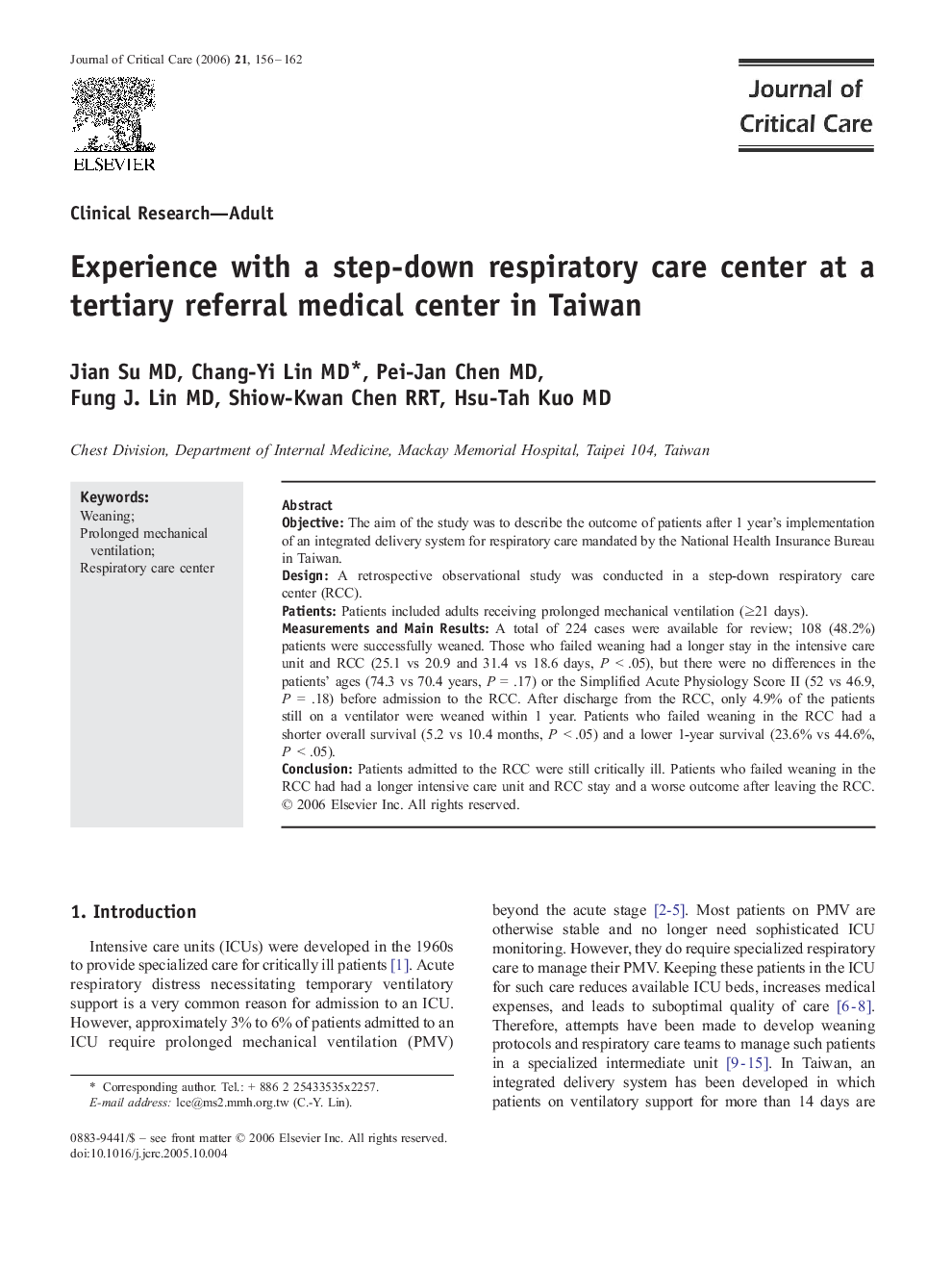| Article ID | Journal | Published Year | Pages | File Type |
|---|---|---|---|---|
| 2765339 | Journal of Critical Care | 2006 | 6 Pages |
ObjectiveThe aim of the study was to describe the outcome of patients after 1 year's implementation of an integrated delivery system for respiratory care mandated by the National Health Insurance Bureau in Taiwan.DesignA retrospective observational study was conducted in a step-down respiratory care center (RCC).PatientsPatients included adults receiving prolonged mechanical ventilation (≥21 days).Measurements and Main ResultsA total of 224 cases were available for review; 108 (48.2%) patients were successfully weaned. Those who failed weaning had a longer stay in the intensive care unit and RCC (25.1 vs 20.9 and 31.4 vs 18.6 days, P < .05), but there were no differences in the patients' ages (74.3 vs 70.4 years, P = .17) or the Simplified Acute Physiology Score II (52 vs 46.9, P = .18) before admission to the RCC. After discharge from the RCC, only 4.9% of the patients still on a ventilator were weaned within 1 year. Patients who failed weaning in the RCC had a shorter overall survival (5.2 vs 10.4 months, P < .05) and a lower 1-year survival (23.6% vs 44.6%, P < .05).ConclusionPatients admitted to the RCC were still critically ill. Patients who failed weaning in the RCC had had a longer intensive care unit and RCC stay and a worse outcome after leaving the RCC.
